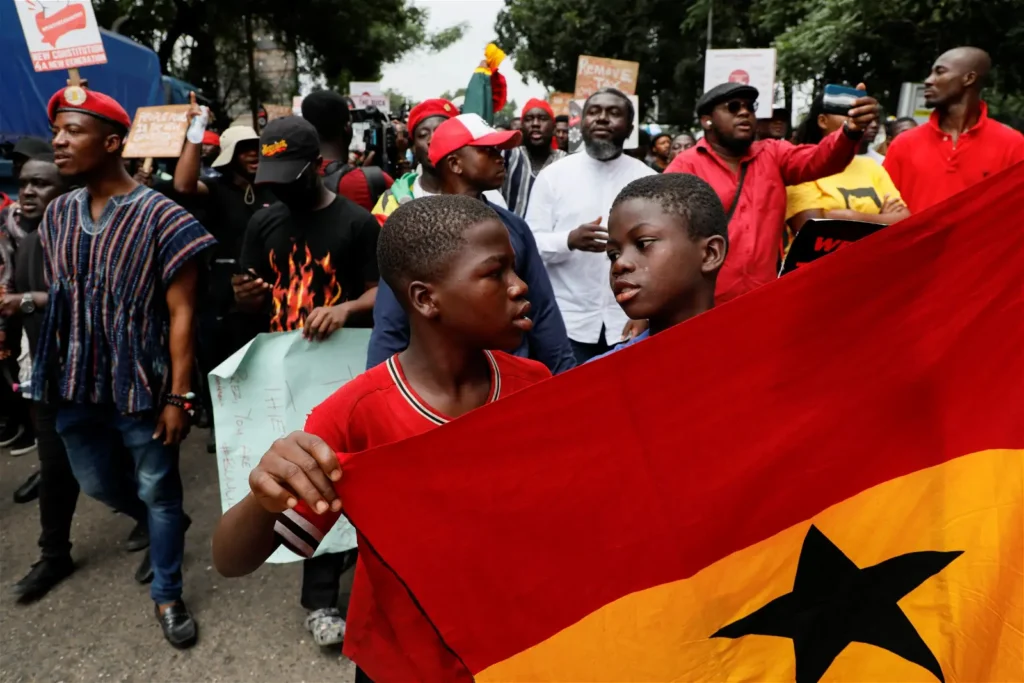On Saturday, hundreds of demonstrators convened in Accra, the capital of Ghana, for the third consecutive day of protests against the government, which have been triggered by economic hardships and have resulted in numerous arrests.
The protesters, some brandishing placards or the national flag, voiced their grievances about the soaring cost of living and the scarcity of job opportunities as they marched while being monitored by riot police.
Ghana, a nation known for its production of gold, oil, and cocoa, is grappling with its most severe economic crisis in decades, primarily due to escalating public debt.
To prevent protesters from reaching Jubilee House, the presidential residence, the police erected barricades. Organizers from Democracy Hub have declared their intention to occupy this symbolic location.
On the first day of the three-day protest, the police reported that 49 individuals had been apprehended for participating in an unauthorized gathering and violating the Public Order Act.
However, there have been no reports of additional arrests, and the situation appeared to be relatively calm on Saturday.
The preceding year saw protests erupt over surging prices and other economic challenges, resulting in clashes with law enforcement.
Ghana’s economic woes in recent times
Although the government entered into a $3 billion, three-year loan agreement with the International Monetary Fund in May, critics argue that authorities have not done enough to assist those struggling to make ends meet amid the prolonged economic downturn.
According to the World Bank Ghana’s economic growth is projected to decelerate to 1.5% this year, down from 3.1% in 2022 and remain depressed in 2024 at 2.8% but the economy is expected to recover to its potential growth by 2025.
In 2022, a convergence of internal disparities and external disruptions resulted in significant macroeconomic difficulties for Ghana.
The year was characterized by the devaluation of the currency, escalating inflation, and a sharp decline in investor trust.
Inflation for August declined from 43.1% in July to 40.1%, marking a ten-month low, although many claim they haven’t seen the effects in the markets.
